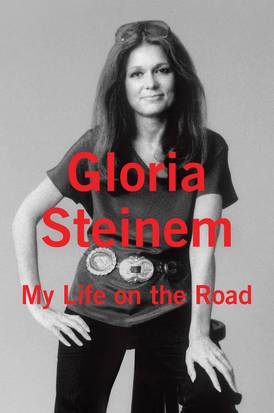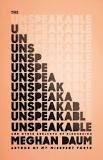 Gloria Steinem has spent her adult life jumping from place to place, from activist to journalist and back again countless times. Her name is synonymous with Second Wave feminism, and her journeys across America for the past 60 years (she’s still go-getting at 81) have kept her from getting too comfortable with any one idea about women’s place in the world.
Gloria Steinem has spent her adult life jumping from place to place, from activist to journalist and back again countless times. Her name is synonymous with Second Wave feminism, and her journeys across America for the past 60 years (she’s still go-getting at 81) have kept her from getting too comfortable with any one idea about women’s place in the world.
My Life on the Road is surprising in that there’s little detail about Steinem’s personal life—it spans six decades where she’s all about organizing and moving on to the next big event or conference or speech. She has collaborators that she travels with frequently, but even the closest ones (like the whip-smart and outspoken Flo Kennedy) aren’t given quite the breadth of personality in text that you’d assume they warrant. Actually, the glimpses of meaning in the book come in snippets of memories grouped under chapter themes, coming together like a tableau album at the end of each. The lengthiest is a listing of her most interesting conversations with taxi drivers in the chapter “Why I Don’t Drive” (which was a great reminder that the best chats come out of the most unexpected circumstances—never close yourself from that possibility and remember to talk to your cab drivers, folks).
Really, it’s a salute to a style of living that doesn’t take time for self-reflection in between historic events and hotel rooms, squished in vans with other social plotters, and sometimes between famous writers (see below). If you are a woman and have been scared to travel alone, this book may inspire you to kick fear in the shins and get out there. If you are a woman who loves to travel alone, you’ll probably wonder just how the hell she gets so much done.
Best Bits:
In one cab ride, Steinem is stuck in the backseat between journalist Gay Talese and novelist Saul Bellow, having been assigned to write a profile on the latter. Talese makes a sexist comment about her being a “pretty girl” and not a writer, but Steinem says nothing and silently fumes.
The famed head-butting between Steinem and Betty Friedan (author of The Feminine Mystique) over the leadership of the National Women’s Political Caucus (NWPC) is not as bloodthirsty as one might expect, but go into Friedan’s tendency for shouting at other feminists.
The kinship she feels for female flight attendants, particularly in her early travel days when air travel was really just taking off.
And: “Wherever I go, bookstores are the closest thing to a town square.” Enough said.

